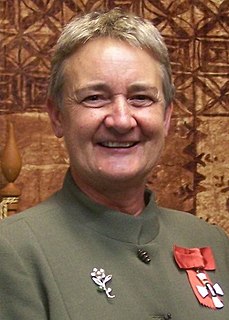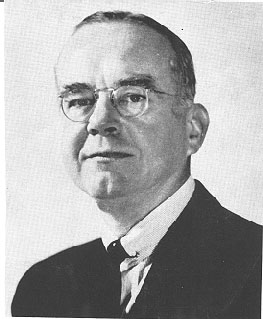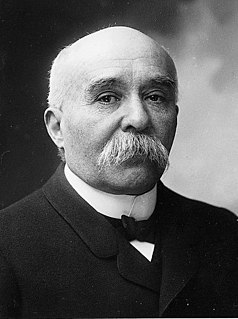A Quote by Leon Trotsky
A program of "disarmament," while imperialist antagonisms survive, is the most pernicious of fictions. Even if it were realized by way of general agreement - an obviously fantastic assumption!- that would by no means prevent a new war. The imperialists do not make war because there are armaments; on the contrary, they forge arms when they need to fight.
Related Quotes
It seems strangely difficult for some to realize that here in Asia is where the Communist conspirators have elected to make their play for global conquest, and that we have joined the issue thus raised on the battlefield; that here we fight Europe's war with arms while the diplomats there still fight it with words; that if we lose the war to communism in Asia the fall of Europe is inevitable, win it and Europe most probably would avoid war and yet preserve freedom. As you pointed out, we must win. There is no substitute for victory.
To have security against atomic bombs and against the other biological weapons, we have to prevent war, for if we cannot prevent war every nation will use every means that is at their disposal; and in spite of all promises they make, they will do it. At the same time, so long as war is not prevented, all the governments of the nations have to prepare for war, and if you have to prepare for war, then you are in a state where you cannot abolish war.
I would say the special experience of American wartime policy in the last 40 years, from Vietnam on, is that the war itself became controversial in the country and that the most important thing we need in the current situation is, whatever disagreements there may be on tactics, that the legitimacy of the war itself does not become a subject of controversy. We have to start with the assumption, obviously, that whatever administration is conducting a war wants to end it.
When the war was in progress, England and France agreed wholeheartedly with the Fourteen Points. As soon as the war was won, England, France, and Italy tried to frustrate Wilson's program because it was in conflict with their imperialist policies. As a consequence, the Peace Treaty was one of the most unequal treaties ever negotiated in history.
If a country develops an economic system that is based on how to pay for the war, and if the amounts of fixed capital investment that are apparent are tied up in armaments, and if that country is a major exporter of arms, and its industrial fabric is dependent on them, then it would be in that country's interests to ensure that it always had a market. It is not an exaggeration to say that it is clearly in the interests of the world's leading arms exporters to make sure that there is always a war going on somewhere.
It seems to me an utterly futile task to prescribe rules and limitations for the conduct of war. War is not a game; hence one cannot wage war by rules as one would in playing games. Our fight must be against war itself. The masses of people can most effectively fight the institution of war by establishing an organization for the absolute refusal of military service.
In war, in some sense, lies the very genius of law. It is law creative and active; it is the first principle of the law. What is human warfare but just this, - an effort to make the laws of God and nature take sides with one party. Men make an arbitrary code, and, because it is not right, they try to make it prevail by might. The moral law does not want any champion. Its asserters do not go to war. It was never infringed with impunity. It is inconsistent to decry war and maintain law, for if there were no need of war there would be no need of law.
This new war, like the previous one, would be a test of the power of machines against people and places; whatever its causes and justifications, it would make the world worse. This was true of that new war, and it has been true of every new war since... I knew too that this new war was not even new but was only the old one come again. And what caused it? It was caused, I thought, by people failing to love one another, failing to love their enemies.
The twentieth century had dispensed with the formal declaration of war and introduced the fifth column, sabotage, cold war, and war by proxy, but that was only the begining. Summit meetings for disarmament pursued mutual understanding and a balance of power but were also held to learn the strengths and weaknesses of the enemy. The world of the war-or-peace alternative became a world in which war was peace and peace war.
Depended on the soldier. To relax, most of them put on headphones or played video games. Later in the war some of the younger officers began to read a lot of anthropology because they realized that the basic problem was that they were trying to fight a war in a culture they didn't understand. They might have read someone like Margaret Mead.











































